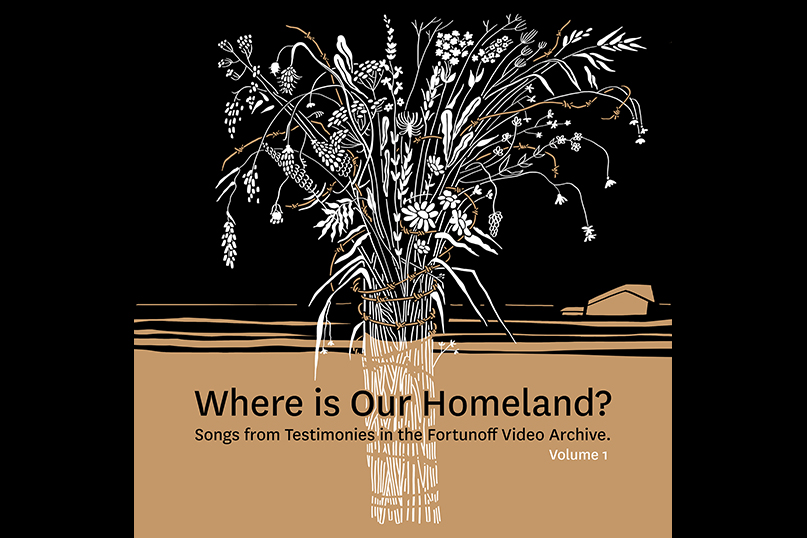
“Where Is Our Homeland? Songs from Testimonies in the Fortunoff Video Archive, Volume 1,” curated, arranged, and composed by musicologist and musician D. Zisl Slepovitch
In the Nazi concentration camps of World War II, Jewish prisoners forged significant bonds and created ephemeral documents of their torturous experiences through song. To honor the significance of these works, Yale University’s Fortunoff Video Archive for Holocaust Testimonies has produced an album, in collaboration with musicologist and musician D. Zisl Slepovitch, called “Where Is Our Homeland? Songs from Testimonies in the Fortunoff Video Archive, Volume 1.”
“The widely diverse compositions presented on the album recreate a multidimensional image of people’s lives and the multiple identities they carried – as Jews by faith and roots, and as European citizens (Poles, Germans, Russians) by culture,” said Slepovitch, musician-in-residence at the Fortunoff Video Archive and the composer and arranger for “Where is Our Homeland.” “The core of this collection conveys the ways people managed to survive during the Holocaust, and the support they gained through the songs they wrote and sang in the ghettos and concentration camps all across Central and Eastern Europe.”
Volume 1 of “Where is Our Homeland?” features 13 tracks of songs originally shared by Holocaust survivors in interviews conducted by the Fortunoff Video Archive, whose collection features no less than 4,400 individual testiomies – more than 12,000 hours of recorded material in over a dozen languages. In a number of interviews, survivors recall songs and poems.
For example, in her 1994 interview, Liubov K., who survived Nazi-occupied Zvenigorodka, Ukraine, said: “Everyone [wrote the songs], all together. This one would give a word, that one would give two. This one a line, and the next would add another. That’s how it came together for us.” The songs created community, granted a form of power to their composers (as some songs mocked captors), and fostered a sense of hope for survival.
All songs were performed by Slepovitch (woodwinds), Joshua Camp (accordion, piano), Dmitry Ishenko (contrabass), Craig Judelman (violin), and Sasha Lurje (vocals). Liner notes include contextual information for each song, translations by Daniel Kahn and Yeva Lapsker, and biographical information about each of the survivors who originally sang the song in their testimony. Cover art was produced by Yulia Ruditskaya.
Slepovitch and the Fortunoff Archive plan to present the album through “listening events” through the Spring and Summer. For more information, email Stephen Naron at stephen.naron@yale.edu.







 Southern New England Jewish Ledger
Southern New England Jewish Ledger















